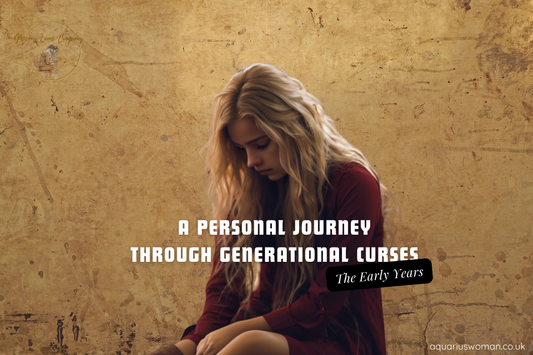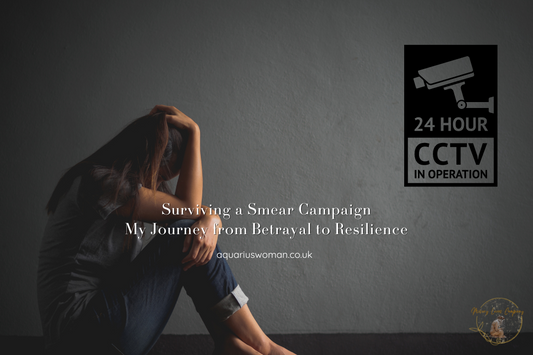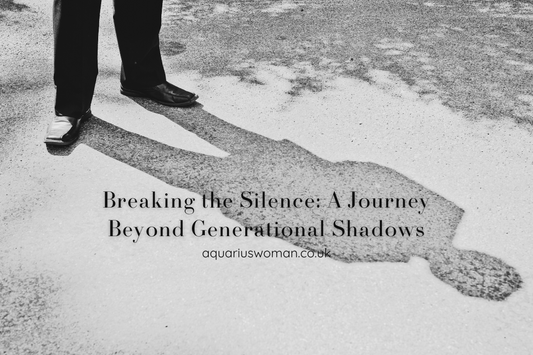When we think of abuse, our minds often go to personal relationships, those intimate dynamics where manipulation, control, and emotional torment can fester.
However, there’s a critical aspect of abuse that is rarely explored: the insidious ways organisations can inflict similar, if not worse, suffering. As someone who has endured a lifetime of narcissistic abuse, and now the damaging actions of my children’s school, I can attest to the harrowing reality that institutions can be as toxic and entrapping as any abusive relationship, if not worse.
My Story in Brief
In my specific case, a school, a place meant to nurture and protect, has become a source of relentless hardship. For over two years, I have been forced to send my children, trapped by circumstances after losing my employment due to battling the school’s persistent attacks. By accessing their complaint policy, I opened myself up to attack multiple times. I sought only safety for my child and faced mighty opposition. The relentless attacks stole my life, my employment, and put immense strain on every aspect of my existence. When the situation turned personal, the agencies involved dropped and closed our cases like hot potatoes.
I scoured the internet and spoke to many people, but no one either believes this goes on, or the school’s position and credibility lend weight to their twisted lies. Now, my concerns fall on silent ears, evoking feelings of powerlessness and frustration.
I only sought support in the very beginning, yet we were met with extreme hostility. I was confused and lost; I had read their policies and knew what they should be doing, but they weren’t.
My phone was ringing 10-20 times a day, and I was called in for meetings where some staff showed me their true colours, I saw their ugly side.
The gaslighting effect of this was immense; they played with me, digging their claws in, and openly lying to those who were meant to support us. Using my children as pawns in their sick game. I was broken. Despite knowing the tactics, I was powerless. My phone was ringing 10-20 times a day, and I was called in for meetings where some staff showed me their true colours, I saw their ugly side.
Their roles, in which integrity is essential, made them a formidable opponent, one that nearly crushed me more than once. If I had known, I would have moved when I could, but their daily attacks took that option away from me, leaving us defenceless.
I was so broken, so lost; my only defence was to catalogue each incident, fight back where I could, and hold ground while we were under siege. I don't think I have ever been so lost and overwhelmed.
I could escape my past abusers, but this time, I was trapped. I had no support from the agencies and police that once helped me. They shunned us because those who were meant to protect us claimed they were, leaving us alone, the most alone I have ever experienced. They stole our rights and made us outcasts with nowhere to turn.
Although I believe the worst may be over, with legal proceedings now in place, the abuse continues. Many of the tactics listed below are still being employed against me and my children.

I’m Not Alone
This is not just my story but an issue that remains largely unspoken. By shedding light on these abusive practices, I hope to spark a much-needed conversation about the toxic dynamics within organisations and the profound impact they can have on individuals and families.
Below is a list of known narcissistic abuse tactics and how these can manifest in an organisational setting, specifically drawing from my experiences. It’s time we start talking about institutional abuse and recognising the devastating effects it can have:
-
Gaslighting: When raising legitimate concerns, they may dismiss your experiences or distort the truth, making you doubt your perceptions and the validity of your complaints,
-
Triangulation: The organisation may involve other staff or even authorities to create confusion, division, and reinforce their narrative, isolating you further.
-
Silent Treatment: If you address a concern, they ignore your communications, making you feel powerless and marginalised.
-
Projection: They will accuse you of being the problem, deflecting attention from their own failures and wrongdoings.
-
Blame-Shifting: Instead of addressing the serious issues, they may blame you for causing trouble or accuse you of exaggerating the problems.
-
Love Bombing: Initially, they might have been overly accommodating to gain your trust, only to turn dismissive or hostile once you raised concerns.
-
Devaluation: They undermine your credibility by belittling your concerns, suggesting you’re overreacting or lack understanding.
-
Hoovering: If you attempt to escalate the issue or withdraw, they might temporarily appease you with false promises of improvement, only to revert to old behaviours.
-
Flying Monkeys: They recruit other staff and agencies to support their position and discredit you, further isolating you and reinforcing their control.
-
Smear Campaigns: Spreading misinformation or negative stories about you within their community to undermine your reputation and support.
-
Future Faking: Promising future changes or improvements that never materialise, keeping you hopeful and compliant.
-
Mirroring: Mimicking your concerns in official responses to appear empathetic, while not genuinely addressing the issues.
-
Intermittent Reinforcement: Occasionally providing positive feedback or minor improvements to keep you engaged and prevent escalation.
-
Financial Abuse: Threatening or imposing financial consequences, such as fines when the weight of the abuse, affects the childrens mental health and can’t attend. They may also contact you constantly at your workplace, jeopardising your job security and potentially causing you to lose your employment.
-
Isolation: Discouraging or restricting your interaction with external authorities who might support your concerns.
-
Intimidation and Threats: Using subtle or overt threats to discourage you from pursuing your complaint further.
-
Boundary Violations: Ignoring or disrespecting your personal boundaries and their own policies such as insisting on inappropriate levels of contact.
-
Emotional Blackmail: They may exploit your known fears and vulnerabilities to gain control and coerce compliance.
-
Withdrawal of Support: Initially supportive members of the organisations or attached agencies might suddenly become cold or unresponsive after you raise issues, making you feel ostracised.
- Pathological Lying: Habitually lying or misrepresenting facts in official communications to control the narrative and evade accountability.
When facing an organisation that behaves in these ways, it can indeed feel like being trapped in a toxic, narcissistic relationship. The power dynamics may seem insurmountable, especially when it's a team against an individual. Recognising these tactics is the first step in protecting yourself and effectively addressing the issues at hand.
I don’t have an answer to prevent this or even a clear solution to stop it. Our matter is still in the hands of the law, and the outcome has yet to be decided. But I can tell you that it was only by pursuing the legal route that I managed to fend off these abusers.
It didn’t stop the abuse, especially within their own walls, where they continued to penalise my child unfairly because I dared to make a stand. I question their motives and I am faced with silence; the good old 'silent treatment' persists.
There is no in-parent-loco, zero. The only thing keeping them from going harder is that the administration changed not long ago; the new administration does not want to be pursued legally, unlike its predecessor. So, we are in some form of standoff, not ideal, but I take solace in this reprieve.
I would guess that these are tactics employed to remove thorns in their sides, students who don’t fit into their mould, or, as in our case, a situation that would threaten the administration’s funding if officially logged. We were scapegoated for financial gain and saved reputations. Seeking support through their processes was punished harshly.
It is not my intention to name and shame those involved, nor address the specifics of our case, that exposure will come with justice. My intention is to reach those who are locked in this dynamic, and those who were forced to move their children or even change their lives to remove their children from a system that is severely failing them.
I hope if you are affected by this, my words resonate, and provide you with some understanding that you are not going crazy, what is happening is very real. The points raised are indeed abuse, and in any other setting, they would be recognised and supported as such. You're not alone!















